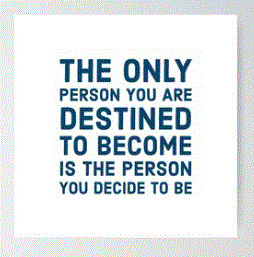"If you want to be successful, you must be willing to do whatever it takes." - Tony Robbins
Tony Robbins is a well-known author, coach, and motivational speaker who is renowned for his insights into success and personal growth. One of his most well-known sayings is, "If you want to be successful, you must be willing to do whatever it takes." This quotation illustrates the notion that achieving success calls for tenacity, diligence, and the willingness to face challenges.
Many individuals aspire to success, but few are prepared to put forth the effort necessary to do so. Success is not something that is given to us on a silver platter; rather, it is something that must be acquired by perseverance, hard effort, and dedication. Those that are truly successful are aware of this and will stop at nothing to accomplish their objectives.
The road to success is frequently paved with difficulties, disappointments, and impediments. It requires perseverance to push through these challenges and keep going even when things are challenging. People who are unwilling to put in the effort and endure in the face of difficulty are unlikely to ever find success.
A successful person, must also be willing to take chances and stretch themselves. Those who play it safe and maintain the current quo rarely find success. It necessitates a readiness to welcome ambiguity, attempt new things, and take on new challenges.
To be clear, doing "whatever it takes" does not imply sacrificing one's principles or integrity. Success shouldn't be sacrificed in order to uphold one's ethics or principles. Instead, it calls for striking a balance between tenacity and morality.
Success takes not only effort and willpower but also a clear goal and a strategy. Successful people have a clear understanding of their goals and the procedures necessary to accomplish them. They actively pursue their objectives and accept accountability for their own achievement.
In conclusion, Tony Robbins' adage, "If you want to be successful, you must be willing to do whatever it takes," reflects the notion that achievement of one's goals necessitates tenacity, effort, and a desire to overcome challenges. True success recognizes this and is prepared to make the sacrifices necessary to pursue aspirations. It is up to you to take the necessary actions and make the necessary sacrifices to achieve success.











